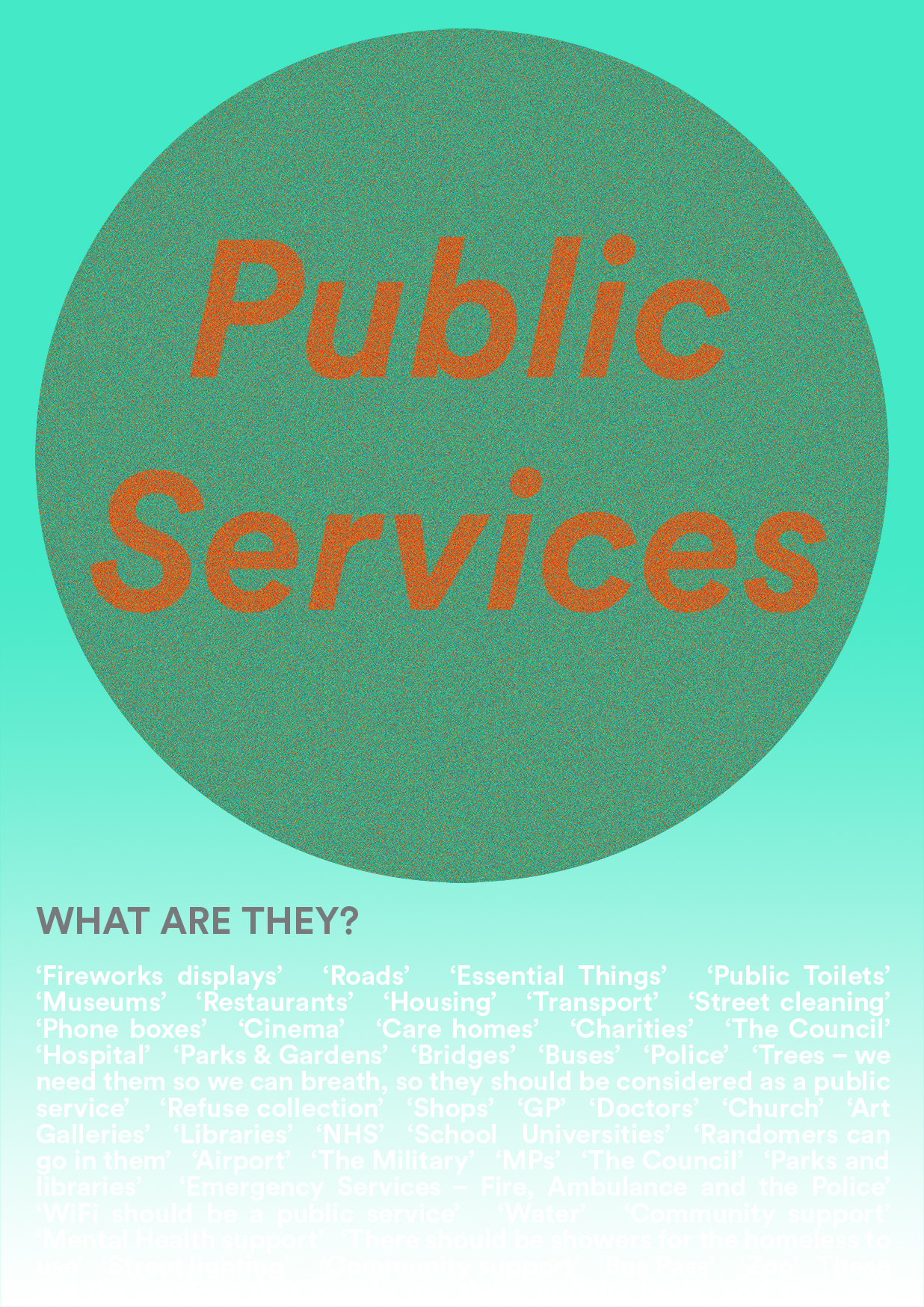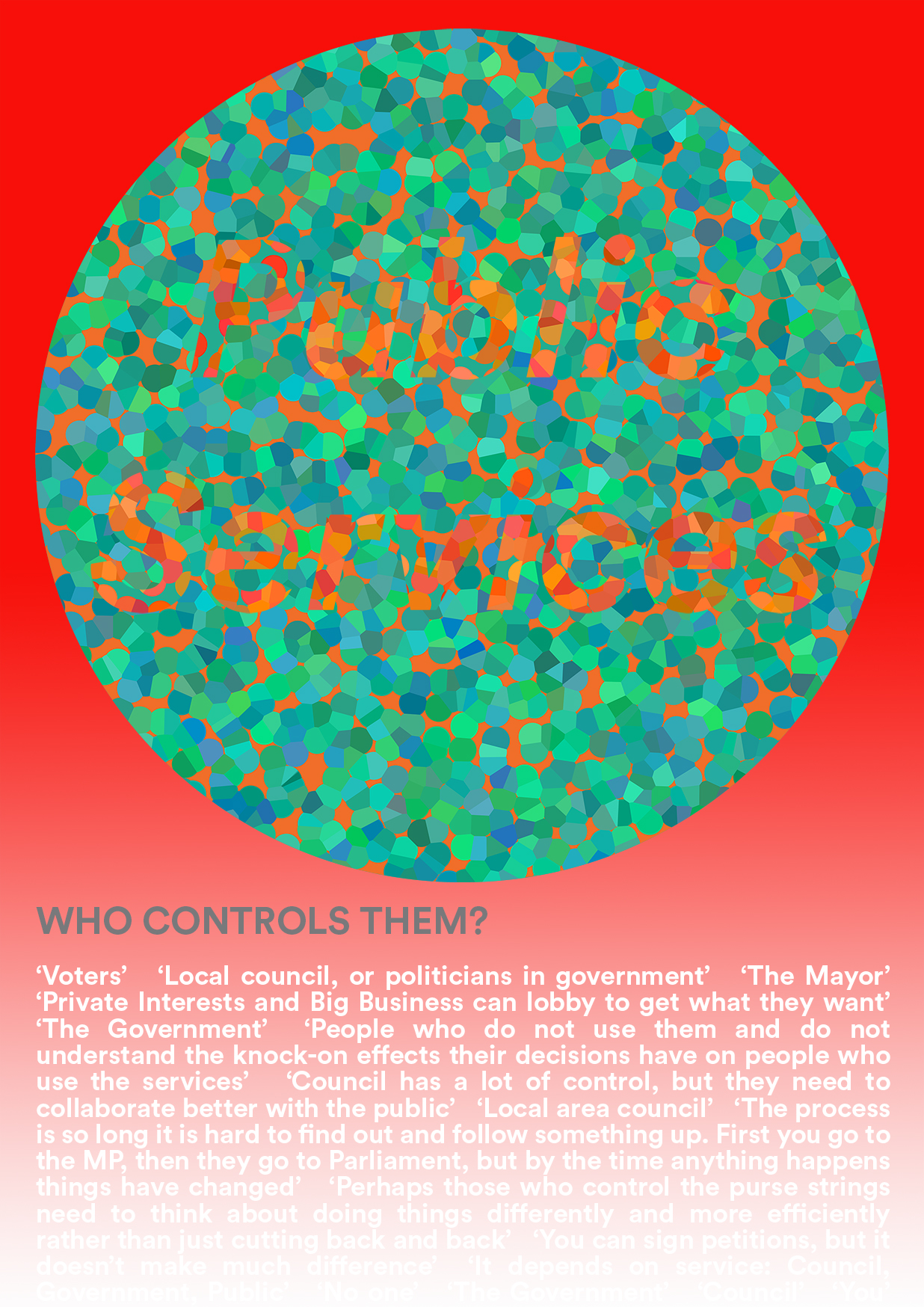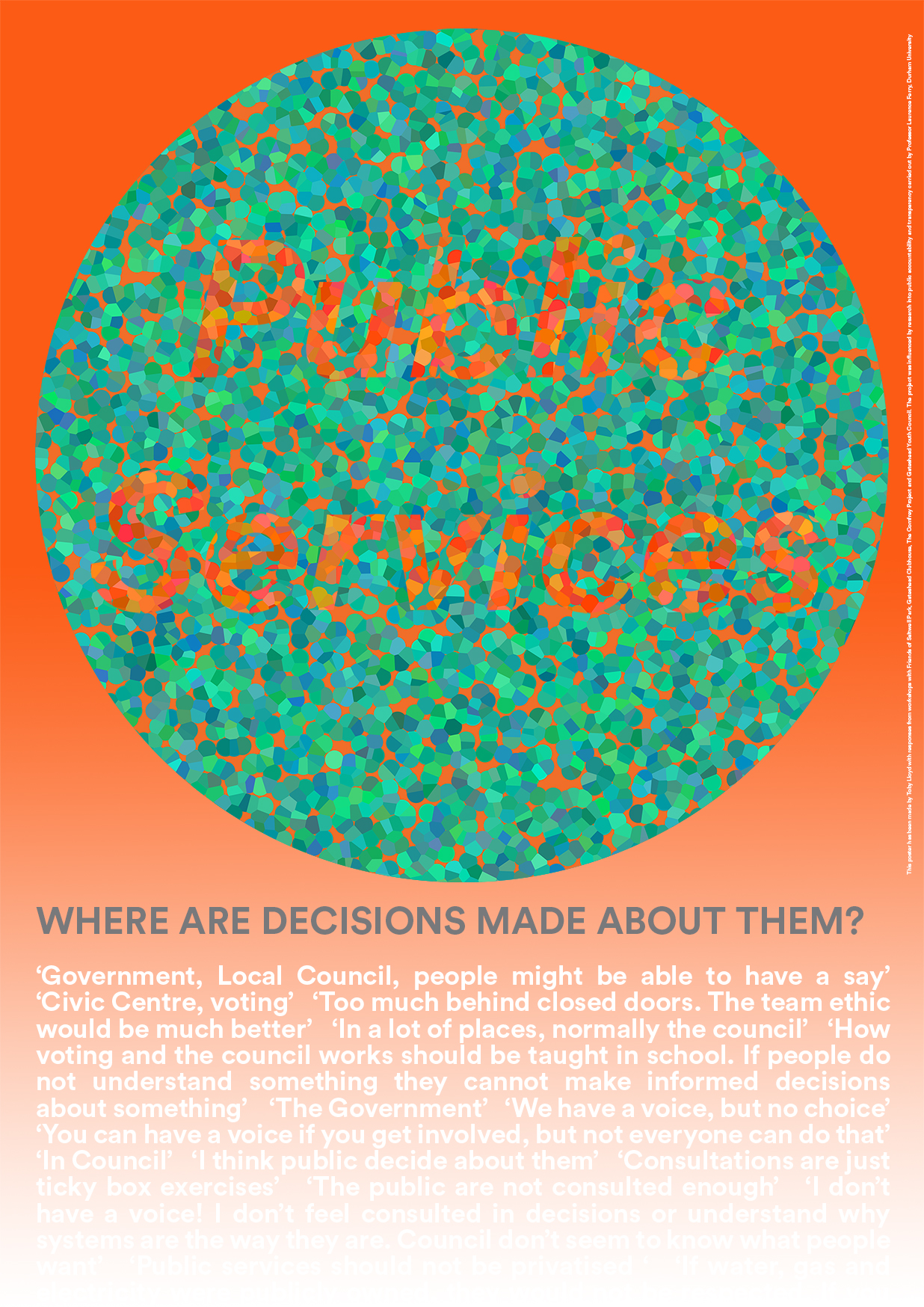Lloyd was invited by Dingy Butterflies to work with several groups in Gateshead over the summer. Workshops used mapping exercises to reveal how participants navigate the city, discuss how it has changed over the years and what it might look like in the future.
From these workshops Lloyd has created Six Honest Servants, a series of posters which question what we understand as public services, when we use them and how much control we have when decisions are made about them.
The posters were exhibited at the Shipley Gallery in Gateshead, see below for text from the exhibition catalogue. A physical copy can be purchased from Dingy Butterflies or you can view a digital version here.
Six Honest Servants by Toby Lloyd questions what we understand as ‘Public Services’ and what we expect from them. Why do we need public services? When do we use them? Who makes decisions about them?
Lloyd worked with several groups of Gateshead residents including Friends of Saltwell Park, Gateshead Clubhouse, The Comfrey Project and Gateshead Youth Assembly as well as members of the public. Through a series of workshops with each group they explored their experiences of Gateshead and what factors influence how they interact with public and private spaces and services. Using mapping exercises, participants were asked to plot locations that they visit regularly and places that they valued as well as create mono-printed signs and posters that reflect what they feel and think public and private spaces should be and how they should interact with and welcome people. They reflected on how Gateshead has or has not changed over the time they have lived and worked there and marked areas that they thought were public spaces or privately owned. These activities lead to discussions around what role businesses and local government play in the way Gateshead functions and the affects these have on their lives.
Recurring themes that emerged during the workshops were the city’s heritage and how it should be protected for future generations, the importance of public transport and meeting spaces, and the growing role volunteers have in maintaining valued resources. These conversations feed into six posters Lloyd created which are based on the Ishihara colour vision test cards that arrange seemingly random coloured dots in a way to create numbers or words that will be completely invisible to those who are colour blind. This is to reflect how our view of what public services are will differ from person to person. Also, the general consensus may have shifted over the years, especially since the 2009 financial crash and the shrinking of local council budgets, limiting what they can deliver. Over the six posters the dots become larger, gradually distorting the text until it becomes almost unreadable. Do the services we consider as ‘public’ still function the same way and how much influence do we have as ‘the public’ in how they are run?
The work takes its title from Rudyard Kipling’s 1902 poem, I Keep Six Honest Serving-Men, in which he identifies the six enquiry words: What, Why, When, How, Where and Who. These words became pointers for people to question and consider public and private services and are reflected in the six posters created.
The project has been influenced by the research at Durham University Business School of Professor Laurence Ferry into accountability and transparency of decision-making processes by local council’s when implementing austerity measures and making cuts to public services. This influence and collaboration feeds into Lloyd’s research and art practice and in turn supports Ferry’s research into public accountability and transparency to make it accessible beyond accounting and the academic world and open it up to the everyday experience of communities. To enable grass root groups and community organisations consider where they fit and understand public and private places and services in their everyday existence and potentially influence them and how they are delivered.


